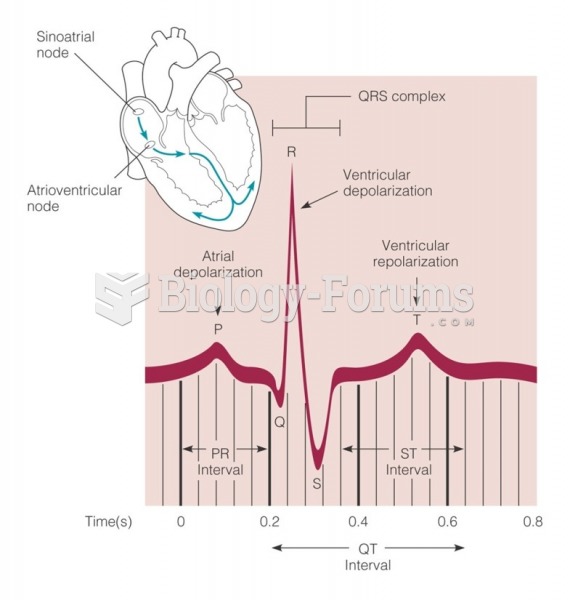This topic contains a solution. Click here to go to the answer
|
|
|
Did you know?
Of the estimated 2 million heroin users in the United States, 600,000–800,000 are considered hardcore addicts. Heroin addiction is considered to be one of the hardest addictions to recover from.
Did you know?
Individuals are never “cured” of addictions. Instead, they learn how to manage their disease to lead healthy, balanced lives.
Did you know?
All adverse reactions are commonly charted in red ink in the patient's record and usually are noted on the front of the chart. Failure to follow correct documentation procedures may result in malpractice lawsuits.
Did you know?
Normal urine is sterile. It contains fluids, salts, and waste products. It is free of bacteria, viruses, and fungi.
Did you know?
Vaccines prevent between 2.5 and 4 million deaths every year.
 The direction of plant cell expansion is controlled by microfibrils and microtubules. Plant cells en
The direction of plant cell expansion is controlled by microfibrils and microtubules. Plant cells en
 A Bottlenose Dolphin (Tursiops truncatus) surfs the wave of a research boat on the Banana River, nea
A Bottlenose Dolphin (Tursiops truncatus) surfs the wave of a research boat on the Banana River, nea
 Fascial stretching techniques. (A) Cross-hand dual direction stretch. (B) Pin and stretch with the ...
Fascial stretching techniques. (A) Cross-hand dual direction stretch. (B) Pin and stretch with the ...




